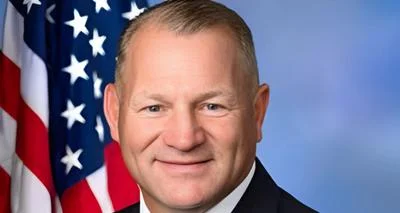Thank you, Mr. Chairman. I would like to welcome Secretary Moniz and thank him for coming before our committee today.
The President’s budget request for fiscal year 2016 calls for investments in research, education, training, and infrastructure. It also calls for the end of the mindless austerity of sequestration, urging Congress to replace it with more targeted spending cuts, program integrity measures, and the closure of several outdated tax loopholes.
The effects of sequestration were immense, and are still being felt. Critical training was postponed; investments were put-off; and research abruptly halted. It was a worst-case scenario that never should have happened and absolutely should never be repeated.
I understand there are various ways we can get there, but what is important is that we craft another compromise - just like we did under the Murray-Ryan agreement. That plan was not perfect, but it does provide a path forward for another budget deal. Without such an agreement, our appropriations process is deeply imperiled. Discretionary funding is falling to its lowest level, as a percentage of GDP, since the Eisenhower Administration. We must again act to ensure reasonable allocations for the important programs and investments funded through the appropriations process.
The budget request for the Department of Energy programs is an increase of $2.5 billion from the 2015 enacted level. These increases would allow robust investments to be made in most of the major programs undertaken by the Department. These programs provide the foundation for the current domestic energy revolution our nation is experiencing, and help better prepare for our future energy needs.
We all see the immediate economic benefit being felt across the country as gas prices have eased. But I hope we don’t take our eyes off the bigger picture. We must continue making critical investments in long-term energy strategies. To that end, I strongly support the President’s continued commitment to additional investments in clean energy, and I hope this subcommittee gives careful consideration to the $800 million requested increase for renewable energy.
Given the experience with Hurricane Sandy and the difficulty the region faced with restoring the electric grid, I also applaud the inclusion of new investments in energy infrastructure technology to improve the resilience of the electric grid.
I also share the Department’s continued commitment to improving our country’s robust scientific workforce. Equipping our citizenry with the knowledge to capitalize on tomorrow’s clean energy economy is one of the best ways to mitigate the impacts of global warming. With a return on investment of 20 to 67 percent from publicly funded research and development, it is imperative that we continue to invest in innovation at our nation’s colleges, universities, and national labs.
These are all important priorities, and I look forward to hearing more details from the Department today. Thank you, Mr. Chairman.
Source: U.S. Department of HCA







